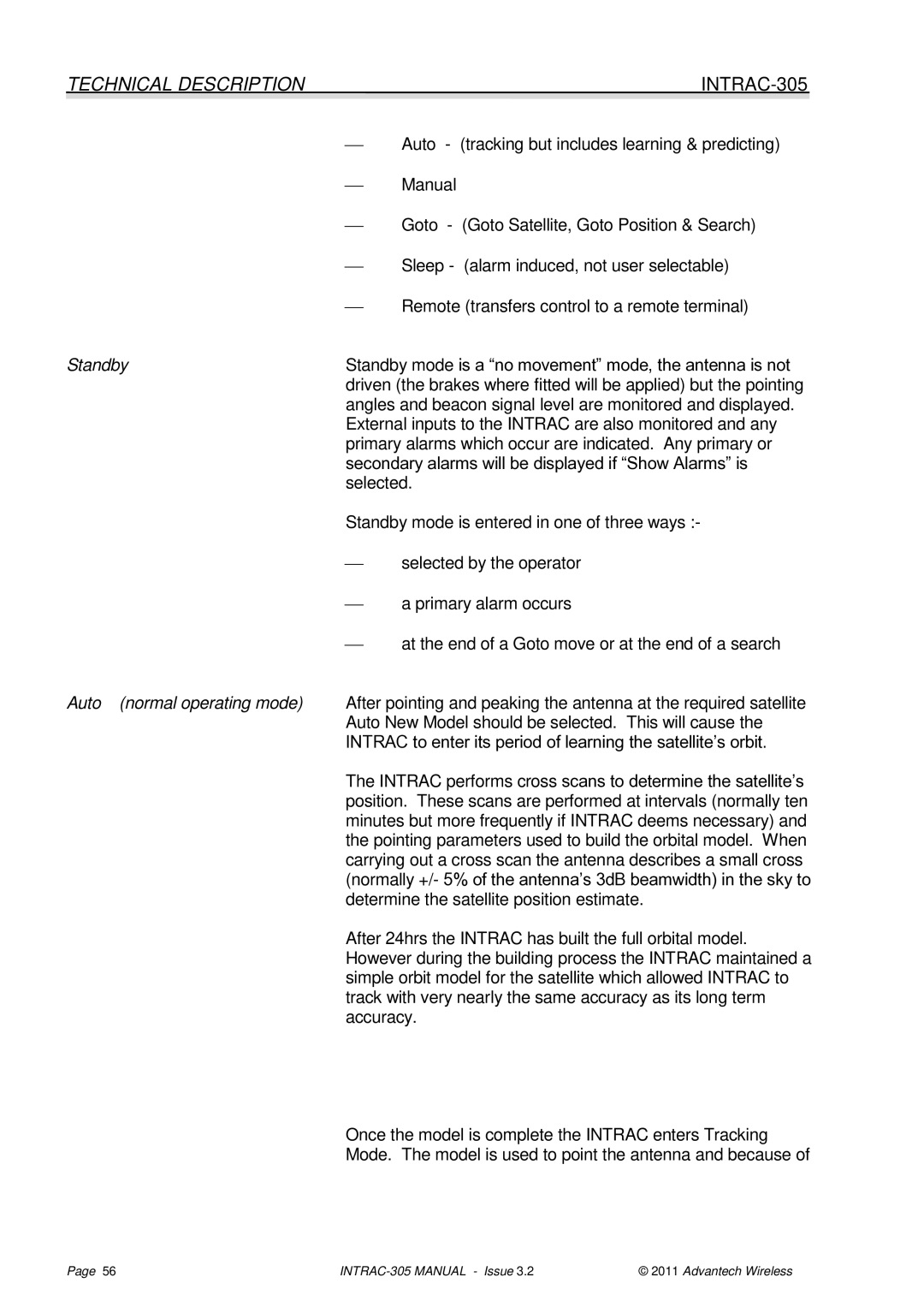TECHNICAL DESCRIPTION |
|
| |
| ⎯ | Auto - | (tracking but includes learning & predicting) |
| ⎯ | Manual |
|
| ⎯ | Goto - | (Goto Satellite, Goto Position & Search) |
| ⎯ | Sleep - | (alarm induced, not user selectable) |
| ⎯ | Remote (transfers control to a remote terminal) | |
Standby | Standby mode is a “no movement” mode, the antenna is not | ||
| driven (the brakes where fitted will be applied) but the pointing | ||
| angles and beacon signal level are monitored and displayed. | ||
| External inputs to the INTRAC are also monitored and any | ||
| primary alarms which occur are indicated. Any primary or | ||
| secondary alarms will be displayed if “Show Alarms” is | ||
| selected. |
| |
| Standby mode is entered in one of three ways :- | ||
| ⎯ | selected by the operator | |
| ⎯ | a primary alarm occurs | |
| ⎯ | at the end of a Goto move or at the end of a search | |
Auto (normal operating mode) | After pointing and peaking the antenna at the required satellite | ||
| Auto New Model should be selected. This will cause the | ||
| INTRAC to enter its period of learning the satellite’s orbit. | ||
The INTRAC performs cross scans to determine the satellite’s position. These scans are performed at intervals (normally ten minutes but more frequently if INTRAC deems necessary) and the pointing parameters used to build the orbital model. When carrying out a cross scan the antenna describes a small cross (normally +/- 5% of the antenna’s 3dB beamwidth) in the sky to determine the satellite position estimate.
After 24hrs the INTRAC has built the full orbital model. However during the building process the INTRAC maintained a simple orbit model for the satellite which allowed INTRAC to track with very nearly the same accuracy as its long term accuracy.
Once the model is complete the INTRAC enters Tracking
Mode. The model is used to point the antenna and because of
Page 56 | © 2011 Advantech Wireless |
